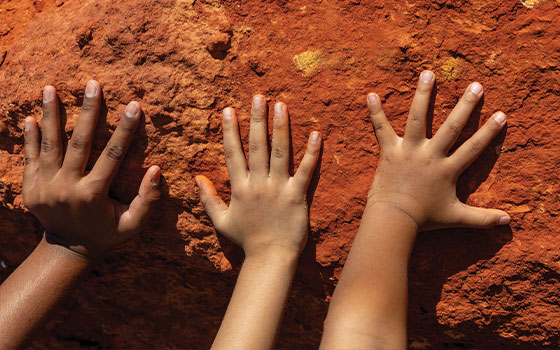Search
Research
Shoulder dystocia in babies born to Aboriginal mothers with diabetes: a population-based cohort study, 1998–2015Australian Aboriginal and Torres Strait Islander women with diabetes in pregnancy (DIP) are more likely to have glycaemic levels above the target range, and their babies are thus at higher risk of excessive fetal growth. Shoulder dystocia, defined by failure of spontaneous birth of fetal shoulder after birth of the head requiring obstetric maneuvers, is an obstetric emergency that is strongly associated with DIP and fetal size.
Research
Overweight/obesity and other predictors of gestational diabetes among Aboriginal and non-Aboriginal women in Western AustraliaThis population-based study investigated the association of BMI and other predictors with gestational diabetes mellitus among Australian Aboriginal and non-Aboriginal mothers. We conducted a state-wide retrospective cohort study that included all singleton births in Western Australia between 2012 and 2015 using population health datasets linked by the Western Australian Data Linkage Branch.
Research
The perinatal and childhood outcomes of children born to Indigenous women with mental health problems: A scoping reviewMaternal mental health problems are common during the perinatal period and have been associated with several negative outcomes in children. However, few studies have examined the associations between maternal mental health problems and offspring outcomes among Indigenous people, and the findings across these studies have been inconsistent. This scoping review examined the birth and childhood (≤12 years) health and development outcomes of the children of Indigenous women with mental health problems.
Research
Aragung buraay: culture, identity and positive futures for Australian children: Dharawal language: aragung = shield for war, protection; buraay = childFiona Pete Stanley Azzopardi FAA FASSA MSc MD FFPHM FAFPHM FRACP FRANZCOG HonDSc HonDUniv HonFRACGP HonMD HonFRCPCH HonLLB (honoris causa) PhD, FRACP
Research
Mapping the citation network on vitamin D research in Australia: a data-driven approachVitamin D research can vary geographically, as vitamin D status is influenced by latitude, season, dietary intake, body mass index, ethnicity, and public health initiatives. Over the last two decades, research on vitamin D has increased in Australia, where the potential for sun exposure (a major source of vitamin D) is high. We aimed to identify key topics and gaps in vitamin D research in Australia using a data-driven approach.

Facilitate research interest & opportunities that involve Aboriginal families & communities and build the capacity and development of Institute researchers
Research
KAMS MOUAs part of the discussions with Kimberley Aboriginal Medical Service (KAMS) to establish the Broome site of the WAAHKN it has been agreed to establish...
Research
Prevalence of chronic respiratory diseases in Aboriginal children: A whole population studyThe burden of bronchiectasis is disproportionately high in Aboriginal adults, with early mortality. Bronchiectasis precursors, that is, protracted bacterial bronchitis and chronic suppurative lung disease, often commence in early childhood.
Research
The weight of culture: Societal individualism and flexibility explain large global variations in obesityObesity rates have been rising steeply across the globe in recent decades, posing a major threat to global human health. Despite this almost universal increase, differences between countries remain striking, even among equally developed societies.
Research
The Development and Implementation of a Culturally Safe Survey for Measuring Knowledge, Attitudes and Values around FASD and Alcohol Use During Pregnancy in a Remote Australian Aboriginal Community SettingGlenn Martyn Pearson Symons BA (Education) PhD Candidate B.A. (Hons) PhD. Director of First Nations Strategy and Leadership; Head, First Nations
